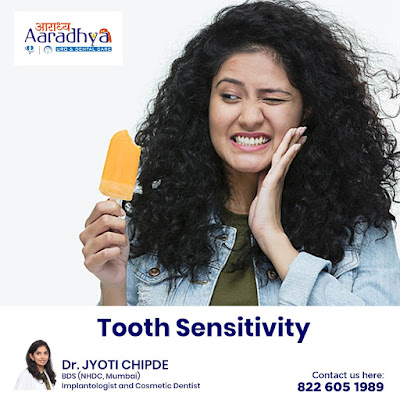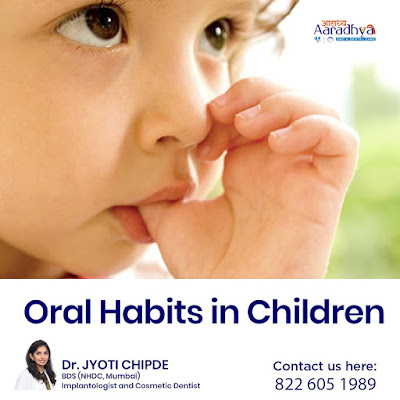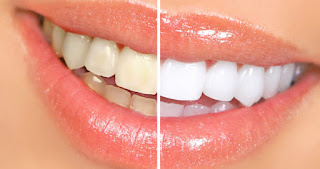TOOTH SENSITIVITY
"Does the taste of ice cream or a sip of coffee a painful experience to you? If so, then you have a tooth sensitivity."
Why are my teeth sensitive?
Sensitivity can occur when gums pull away from the teeth or when gum tissue is lost. Gum loss can occur as a result of brushing too hard, not brushing or flossing regularly. The exposed soft part of your tooth can cause pain. It can even affect or change your eating, drinking and breathing habits.
When gum loss occurs, the part of the tooth below the gum line can be exposed. This is called the tooth root. There are tiny tunnels that contain fluid which pass from the tooth root to the tooth's nerve center. This nerve center is called the pulp. When heat or cold touches these tunnels, the tooth fluid can excite the nerve, causing pain in your teeth.
What causes sensitive teeth?
Brushing: Brushing too hard or not brushing correctly. can cause enamel to be worn away - particularly where the teeth meet the gums. The freshly exposed dentine may then become sensitive.
Teeth grinding: It is a habit which involves clenching and grinding the teeth together. This can cause the enamel of the teeth to be worn away, making the teeth sensitive.
Cracked or fractured teeth: Due to cuspal or root fracture you are likely to experience sensitivity. Extreme especially cold, may cause discomfort.
Recent filling & decayed teeth : Recently restored restoration like amalgam or composite restoration may cause sensititivity. Sensitivity could be due too hot, cold or sweet food and drinks. Since the tooth structure becomes soft and more porous with a cavity, the outer enamel layer can no longer protect the tooth sufficiently and cause the tooth to become sensitive.
Is tooth sensitivity a common condition?
Tooth sensitivity is one of the most common complaints among dental patients. One out of eight adults is suffering from sensitivity. The common age group for sensitivity is from 20 to 70 years.
How can I prevent tooth sensitivity?
- Brush your teeth twice a day and floss frequently to prevent gum disease - Be sure to clean all parts of your mouth, including between teeth and along the gum-line Change your toothbrush every two to three months before it become worse.
- Avoid acidic foods and drinks. Try to have them in mealtimes. If you still have sensitivity, talk to your dentist. They may have other suggestions.
- If you are thinking about having your teeth bleached then discuss sensitivity with your dentist before starting the bleaching procedure.




Comments
Post a Comment